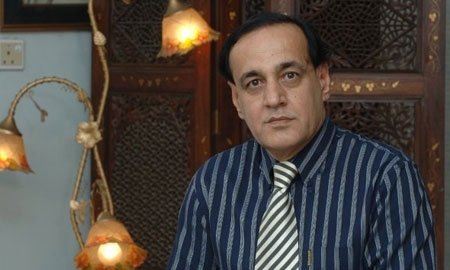Political ethics also known as political morality is the practice of making moral judgments about politics, and political agents. All men are not evil and have the possibility of redemption. We learn moral virtue primarily through habit and practice. Personal interest is indicative of moral decadence. Moral degeneracy is widespread in Pakistani politics. Politics deprived of any moral principles mirrors social destruction. Seeing the current discontent muddying the political waters in this country, one can safely accept that Machiavelli has many followers in Pakistan’s political scene. The use of abusive language, the hurling of baseless and damaging accusations, and the mocking of opponents have become a political norm in Pakistan. Remarkably, in the local language of politics, the antonym of morality is not immorality, but corruption. Politicians are deemed immoral because they are corrupt, and loot and misuse public money. The political leadership should be able to discover the dark areas, rather than operating in this unclear area. The current political crisis allows the political leadership to review their actions. At present, Pakistani society is functioning with low morality, ethics, and respect for other fellow beings. Civility is a thing, through which we determine right and wrong conduct, the guide to good or right. Civility requires that people sacrifice their interests for the sake of society. Many experts and educationists now say that the function of rightness and ethics is to reduce social tensions and thereby enable society to guarantee the prosperity of its members smoothly and efficiently. Politics is a significant part of any society, but it becomes poisonous when it lacks enough moral character. Pakistan’s politics, dominated by some parties that use uncivilized language are contributing to the moral degeneration of the country. These political leaders are not promoting the national interests; instead, they are serving their interests and those of their groups. Uncivilized language for political figures, groups, institutions, and media personalities weakens democracy and leads to social unrest. It distracts attention from the issues and policies that can improve people’s lives and makes citizens disheartened, indifferent, or even pessimistic about the political process. It also deprives the media of valuable resources and diminishes its efficiency in exposing corruption and ineffectiveness in governance. Pakistan’s manifold problems have one underlying reason. It has fallen into a moral confusion. The ethical foundations of Pakistan’s institutions are eroding, and individuals’ moral beliefs have little bearing on their actions. They pay lip service to morals and self-serving norms guide their actions. Their ideals often clash with their actions. Material considerations have come to motivate public behavior the most, despite assertions of piousness. Our politicians have little regret about switching loyalties, changing parties, bargaining for offices, and material gains. Having a bad reputation does not affect them at all Goods and services provided in the market are undependable. Adulteration of foods and medicines is common. People more often than not use the term number two for imitation and fake goods, which are common. These few examples of our public life highlight the enigma of our awareness of the dominant immorality and unfairness. However, we justify such behaviors for ourselves by the common adage, all do it, and therefore I have to do the same. This belief helps kill our moral voice. A look at many of our political class’s behavior bears out my contention. What they say about their ideological and public service commitments are expressions of their beliefs of moral ideals. The pursuit of power, riches, and personal gains guides their behavior. Now even naming and shaming does not produce any guilt. The materialistic ethics of unrestrained pursuit eclipses the morals of pledged ideology and service. The nation awaits change.
The entire nation is in shock over the Jaffar Express attack, the Prime Minister contacted the Chief Minister of Balochistan.
ISLAMABAD: Prime Minister Shahbaz Sharif has said that the entire nation is deeply shocked by the terrorist attack on the...
Read more







